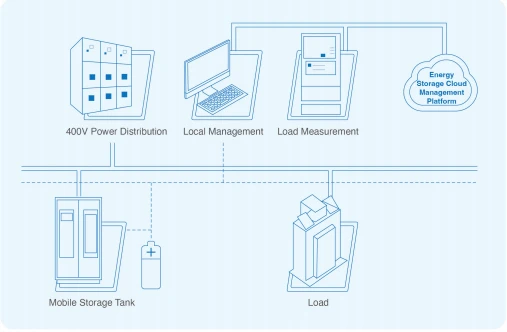
Dec . 23, 2024 04:42 Back to list
smart energy management
Smart Energy Management Paving the Way for Sustainable Futures
In an era marked by rapid technological advancements and growing concerns over environmental sustainability, the concept of smart energy management has emerged as a beacon of hope. This innovative approach integrates advanced technologies and data analytics to manage energy consumption efficiently, ultimately paving the way for a sustainable future.
Understanding Smart Energy Management
At its core, smart energy management refers to the systematic monitoring and optimization of energy usage in various settings, including residential, commercial, and industrial spaces. Through the use of smart meters, IoT devices, and AI algorithms, these systems offer real-time insights into energy consumption patterns. This allows users to identify inefficiencies and areas for improvement, leading to smarter energy use.
The integration of renewable energy sources, such as solar and wind, further enhances the potential of smart energy management. With energy storage solutions like batteries, excess energy generated during peak production times can be stored and used when demand is high. This not only maximizes renewable energy utilization but also helps to stabilize the grid, making it more resilient to fluctuations.
Benefits of Smart Energy Management
1. Cost Savings One of the most immediate benefits of smart energy management is the reduction in energy costs. By identifying peak usage times and adjusting consumption accordingly, households and businesses can save significantly on their energy bills. Furthermore, many regions offer incentives for energy-efficient practices, which can lead to additional financial benefits.
2. Environmental Impact The shift towards smarter energy management plays a crucial role in reducing carbon footprints. By optimizing energy consumption and increasing the use of renewable energy sources, emissions associated with fossil fuels can be curtailed. This is essential for combating climate change and promoting sustainable practices.
3. Increased Efficiency With real-time monitoring and analytics, smart energy management systems enhance operational efficiencies. For businesses, this means not only saving on energy costs but also improving productivity. For example, smart technologies can automate lighting and heating based on occupancy, ensuring that energy is used only when needed.
4. Enhanced Energy Security As global energy demands continue to rise, energy security becomes paramount. Smart energy management contributes to a more dependable energy supply by enabling better grid management and minimizing energy wastage. This transition is vital, especially in regions prone to energy shortages.
smart energy management

Challenges in Implementation
Despite its numerous advantages, the implementation of smart energy management systems is not without challenges. One significant hurdle is the initial financial investment in technology and infrastructure. Many organizations and households may be hesitant to make upfront expenditures, even when long-term savings are evident.
Another challenge is the integration of diverse technologies and systems from various manufacturers. A fragmented market can lead to interoperability issues, making it difficult to achieve seamless energy management solutions. Thus, standardization becomes critical to facilitate smooth communication among devices and systems.
The Future of Smart Energy Management
As we look towards the future, the importance of smart energy management will only grow. With the rise of electric vehicles, smart homes, and the increasing reliance on connected devices, energy demands will shift dramatically. Smart energy management systems must evolve to address these changes, ensuring efficiency and sustainability remain at the forefront.
Governments and policymakers also have a crucial role to play in promoting smart energy practices. Investing in infrastructure, offering incentives for the adoption of smart technologies, and establishing clear regulations will help speed up the transition to energy-efficient systems.
Individuals can also contribute to this movement by adopting smart technologies and making informed choices about energy consumption. Simple actions like using smart thermostats, energy-efficient appliances, and engaging in renewable energy programs can collectively have a significant impact.
Conclusion
Smart energy management is no longer just a luxury; it is a necessity for a sustainable future. By optimizing energy consumption, reducing costs, and minimizing environmental impact, smart energy management presents a viable solution to some of the most pressing challenges we face today. With continued innovation and collaboration among stakeholders, the potential for a more energy-efficient world is within reach. The journey toward sustainability is ongoing, and smart energy management is paving the way forward.
-
Advanced AI Energy Management with GPT-4 Turbo
NewsAug.02,2025
-
AI-Powered EMS with GPT-4-Turbo | Efficiency Boost
NewsAug.01,2025
-
Optimized Storage System for GPT-4-Turbo | High Performance
NewsJul.31,2025
-
AI Energy Management System w/ GPT-4 Turbo Efficiency
NewsJul.31,2025
-
High-Performance Energy Storage System for Reliable Power Solutions
NewsJul.30,2025
-
Advanced EMS Solutions for Energy Management System & Storage Battery Companies
NewsJul.29,2025























